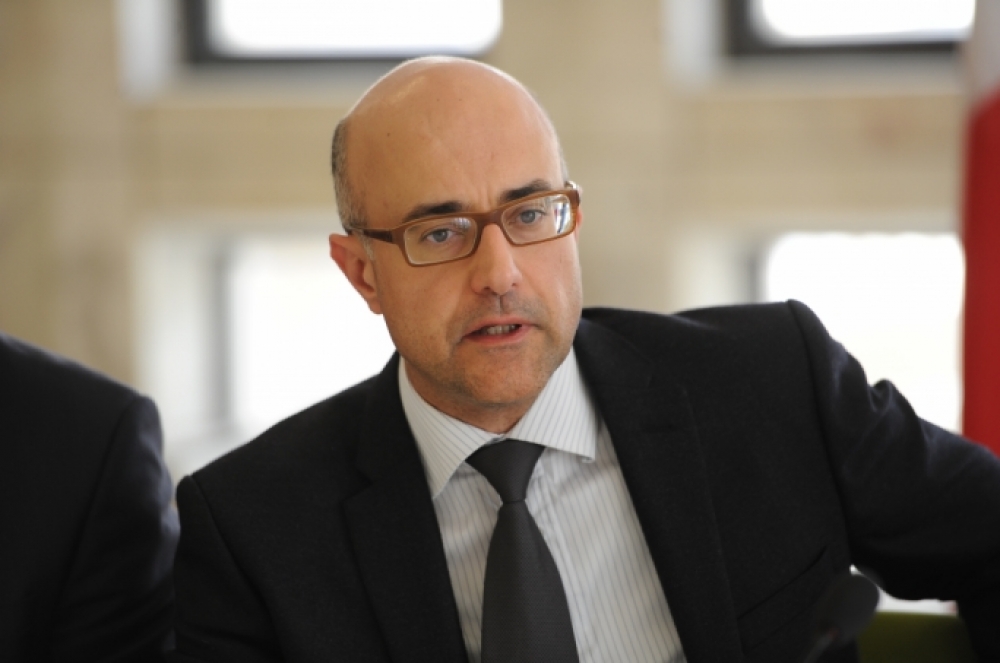
The judge presiding over Jason Azzopardi’s appeal for an investigation into Gozo Minister Clint Camilleri was confronted with her own ruling from two decades ago, when she had triggered a magisterial inquiry based on a private request.
Judge Consuelo Scerri Herrera is hearing Azzopardi’s appeal against a magistrate’s decision not to investigate allegations of fraudulent job placements and mooring allocations at Mġarr harbour. During the hearing on Thursday, Azzopardi repeatedly referred to Scerri Herrera as “magistrate” – a slip he attributed to a significant case from her past.
“I keep calling you magistrate by mistake because, 22 years ago, when you were a magistrate, you received an envelope from Carmelo Abela and opened an inquiry based on its contents,” Azzopardi argued in court.
The lawyer pointed out that in 2003, Scerri Herrera had initiated an investigation solely on suspicions surrounding direct orders issued by the Foundation for Tomorrow’s Schools.
That inquiry eventually uncovered procurement violations, though no criminal charges followed.
Azzopardi insisted that the legal basis for opening an inquiry remained unchanged, apart from an additional requirement that the alleged perpetrator be identified and given a right to reply.
Disputed court decree
Azzopardi is also contesting a separate ruling in which a magistrate turned down his request to investigate Camilleri over an Olympic-sized pool project. He claims the decision was authored by Magistrate Donatella Frendo Dimech instead of Magistrate Brigitte Sultana, who was assigned to the case.
To support this claim, Azzopardi pointed to the metadata of the court decree document, which listed Frendo Dimech as the author. An IT expert he consulted confirmed this assertion.
During Thursday’s session, court expert Stephen Farrugia Sacco explained that a Word document’s “creator” property refers to the computer it was first drafted on. Even if the content is rewritten entirely, the original computer’s details remain embedded in the file.
Gozo Minister Clint Camilleri’s lawyer, Stephen Tonna Lowell, pushed back, arguing that Azzopardi’s claim was just one of many possible explanations. “What my colleague is saying might be true, but there are hundreds of other plausible scenarios,” he said.
Kathlene Grima, representing Marcel Meilaq, also dismissed Azzopardi’s argument, citing a recent court judgment by Justice Natasha Galea Sciberras, which similarly listed a different author in its metadata. “There’s no doubt that Justice Sciberras wrote the judgment,” she said, adding that such discrepancies are common.
The allegations
Besides Camilleri, Azzopardi alleges that three others – Toni Caruana, his son Christoff, and Marcel Meilaq – were involved in a racket offering jobs and mooring spots in exchange for bribes.
He claims that Caruana met people in the village square or the local band club, promising public sector jobs or priority mooring spaces at Gozo harbour in return for kickbacks. Some spots, he alleges, were even handed out to non-fishermen, while others were able to jump the queue.
Caruana allegedly passed on requests to his son Christoff, who until recently was the head of Customer Care at the Gozo Ministry and part of Camilleri’s private secretariat. Azzopardi claims that Christoff then relayed the information to Marcel Meilaq, a Transport Malta official in Gozo.
The court will deliver its decision on Azzopardi’s appeal on April 29.










